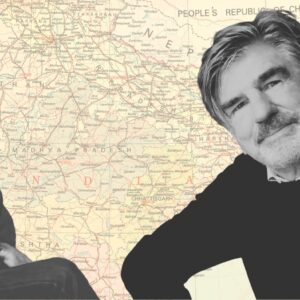
In Nazism, Joseph Roth Saw the End of Europe’s Cosmopolitan Dream
Morten Høi Jensen on the Devastation of an Idea
Of all witnesses to the rise of the Third Reich, the Austrian writer Joseph Roth was among the least ambivalent and most despairing. In his famous response to the Nazi book burnings of 1933, “The Auto-da-Fé of the Mind,” he encouraged German writers of Jewish descent to accept the capitulation of European culture and embrace defeat: “Let us, who were fighting on the front line, under the banner of the European mind, let us fulfill the noblest duty of the defeated warrior: Let us concede our defeat.”
He did not mean that Jewish writers should march willingly into the furnace of German fascism; he meant that defeat absolved them of having to offer vague assurances of hope. They did not have to join the courageous yet doomed chorus of humanitarian protest.
Writing to the editors of Das Neue Tage-Buch in October 1934, Roth admitted that while he admired other writers for their public appeals to “the remains of a European conscience,” he himself could not share in their idealism. “What use are my words,” he asked, “against the guns, the loudspeakers, the murderers, the deranged ministers, the stupid interviewers and journalists who interpret the voice of this world of Babel, muddied anyhow, via the drums of Nuremberg?”
And yet, having conceded the futility of his profession, he continued writing. “One must write, even when one realizes the printed word can no longer improve anything,” Roth explained. From a place beyond hope, the author was permitted to follow the internal logic of the writing itself, rather than some external logic imposed on it. Will Stone’s translation of Roth’s writings of the 1930s, On the End of the World, recently reissued by Pushkin Press, is a radiant book of futile missives from that beyond.
Worlds ending or lost, suns setting and things breaking apart, are recurring motifs in Roth’s life and writing. In The Emperor’s Tomb (1938), the narrator considers “World War” an accurate description of the Great War, not because the whole world fought in it, but because “we lost a whole world, our world.” In The Radetzky March (1932), the omnipresent Emperor, Franz Joseph I, sees “the great golden sun of the Habsburgs sinking, smashing on the bottom of the universe, crumbling into various littler suns…” Roth himself was described by his sometime lover, the novelist Irmgard Keun, as a man “splintered into a thousand fragments.”
Fragmentation, displacement, dissolution—these were conditions Roth was born into, the ruins he inherited. His great biographer David Bronsen writes that the term fatherland was for Roth “imbued from youth on with the bitter-sweet taste of decay.” Roth never knew his father, and throughout his life every paternalistic figure or institution—the Emperor, the Empire, marriage, the Austrian Republic, and finally Europe itself—vanished or was destroyed.
“You lose one homeland, and then another,” he wrote in 1938, when the Nazis invaded Austria. Probably he felt like Lieutenant Trotta in The Radetzky March, likened to “a man who had lost not only his home, but also his homesickness, his nostalgia for that home.”
*
Roth was born in 1894 in Brody, a remote Galician border town of peasants, smugglers, traders, merchants, and Jews, many of them refugees fleeing the pogroms in Russia. Located in the northeast corner of the Austro-Hungarian Empire, roughly 400 miles from Vienna, Brody saw some of the worst fighting between the Central Powers and Russian forces during the First World War. Roth was a student at the University of Vienna when the fighting broke out and in 1916 volunteered to join the Imperial Habsburg Army, serving briefly on the Eastern front—“6 miles behind enemy lines,” as he put it in a letter at the time.
After the war Roth returned to Vienna, where he launched his journalistic career at mostly left-wing papers (he was known as Rote Roth; “Red Roth”) before leaving for Berlin. There he became a noted feuilletonist with the bourgeois newspaper Frankfurter Zeitung, reporting from France, Italy, Poland, Albania, and the Soviet Union, among other places.
Roth had no money, no steady job, no bank account, and almost no clothes. He had no books, least of all his own.
Unusually observant and skeptical, Roth drew admiration for his wit and metaphorical dash, in particular his ability to sketch a full human portrait with just a few strokes of his pen. “He seems to have refused the respectable silver of old age,” Roth writes of an old, bald waiter at a hotel. “Either that, or he is so old that he has passed through the epoch of white hair and is well on the way to putrefaction, a species of human mineral, perhaps regressing to the world’s original condition, the inertness of the so-called organic.”
A similar tone animates his best fiction, as in this celebrated description from The Emperor’s Tomb: “As he spoke, he kept running his hands through his greying blond whiskers, as though to caress both halves of the Dual Monarchy.” In both examples, as is so often the case with Roth, what may at first appear to be satire or caricature is revealed, on closer inspection, to be a kind of buried empathy, all the more affecting for being so reticent.
Roth’s personal life, meanwhile, was as porous as an Eastern European border. Michael Hofmann, his finest English translator, has called him “the most impractical man who ever lived,” and with good reason. Roth had no money, no steady job, no bank account, and almost no clothes. He had no books, least of all his own. Eventually, he lost his teeth, too. And since Brody, like the rest of Eastern Galicia, had been absorbed into the First Polish Republic after the disintegration of the Austro-Hungarian Empire, Roth had no home either. “I’m always back and forth, without a fixed address,” he told Stefan Zweig.
Not even marriage offered Roth stability or lasting companionship. He was unsettled and travelled too often, and in 1929 his wife, Friedl Reichler, succumbed to schizophrenia. For most of that year she was bedridden, psychotic, and suicidal—“barely alive,” as Roth put it in a desperate letter to his friend René Schickele. When a brief stint in the care of her parents failed to improve her condition, Friedl was admitted to a psychiatric hospital outside of Vienna.
The sensitive, patient letters Roth exchanged with his in-laws in the years to come often make for difficult reading. (“Dear parents”; “Don’t worry if Friedl blames you for all kinds of things…”; “Chin up, Friedl will one day speak clearly again.”) The ordeal aged him prematurely. His hair turned grey and he was frequently ill. Already a habitual drinker, his relationship with the bottle turned lethal. Friedl never recovered, and Roth never stopped blaming himself. If he hadn’t died the year before her, news of her euthanization by the Nazis in July 1940 surely would have killed him.
*
Though primarily known to his contemporaries as a journalist, Roth wrote at least half a dozen novels during the 1920s, including Hotel Savoy, Flight Without End, and Right or Left, before finally achieving his breakthrough with Job and The Radetzky March, published in 1930 and 1932, respectively. But in the usual manner of Roth’s life, even this success was snuffed out by the impersonal forces of history: during the Nazi book burnings in the spring of 1933, Roth’s novels were at the top of the pyre, thus denying him access to his newfound German readership. For the rest of his life he was dependent on precarious and harassed émigré publishers in the Netherlands with scant resources.
Roth saw first-hand the fault lines of the bitterly defeated and politically divided new German republic.
By then, Roth had already turned his back on Germany. On the same day that Hitler was appointed chancellor in January 1933, he got on a train from Berlin to Paris and never set foot there again. As Michael Hofmann has noted, no one was more intellectually prepared for the calamitous events of that year than Roth.
The earliest article included in On the End of the World is an account of Hitler’s trial for high treason after the attempted Nazi coup in Munich in November 1923 known as the Beer Hall Putsch. Roth denied the reality of the trial and likened it to a carnival show. He saw clearly the desire of Hitler and his storm troopers to spark a national-conservative revolution and revive the delusions of German grandeur that had been thwarted (as they saw it) by enemies at home and abroad in 1918.
“The tombs of world history are yawning open in Munich and all the corpses one thought interred are stepping out,” he wrote. “A grotesque dream is forming—and all Germany accepts this miracle with indifference, as if it was self-evident.”
Roth spent much of the 1920s reporting from places like Hamburg, Berlin, Munich, and the Ruhr, and saw first-hand the fault lines of the bitterly defeated and politically divided new German republic. He encountered swastikas and nationalist propaganda in the tourist resorts of the Baltic coast; saw hordes of Jewish refugees in Berlin with “millennial sorrow” in their eyes; and visited the former home of Walther Rathenau, the Foreign Minister who was assassinated in 1922 by members of a rightwing terror group.
When Hitler ascended to the Reich Chancellorship, Roth was under no illusion about what has happening to Germany. “The barbarians have taken over,” he wrote to Zweig in February 1933. “Do not deceive yourself. Hell reigns.”
The same clarity of conviction sparkles on every page of On the End of the World. Roth endeavors to be as clear and explicit as he can about the realities of the Nazi dictatorship, even as the horrors perpetrated on the world become more and more inexpressible. He is determined to be outraged, and this determination prevents his pessimistic articles from being merely pessimistic; it gives his voice urgency and power. “For seventeen months now we have got used to the fact that in Germany, more blood has been spilled than the printer’s ink required to write about it,” he commented in the Pariser Tageblatt on July 6th, 1934.
Roth vented a whole life’s worth of disappointment, bitterness, and anger on the fascist conquest of Europe. “My grief leaks out of private things into the public realm,” he wrote to his friend Pierre Bertaux in 1929. Perhaps for this reason the best piece in this volume is Roth’s wounded response in Das Neue Tage-Buch to the Anschluss, the Nazi invasion of Austria on March 12th, 1938:
[Austria] catered for a maximum of differences and a minimum of antagonisms. But then, its contradictions only seemed like antagonisms and the world, which has no real understanding of the baroque—where pleasure and contradiction are vital, and all is caprice not dissension—this world which has become so simplistic, no longer a globe, but a trapezium in two dimensions and transparent as a glass of water, saw a tragic hatred, where there was only cause for discussion.
This Central European world of multitudes and contrasts, of difference, discussion, variation, marginality—a world of opposition but not separateness—was the world destroyed by the two World Wars. For Roth, one of the chief culprits was the nationalist zeal that had gripped Europe after 1918: “You could say that patriotism has killed Europe,” he wrote in December 1934. “This idiotic love for the ‘soil’ kills off a love for the earth. The pride of being born in a particular country, within a particular nation, annihilates the feeling of European universality.”
Growing up in Galicia, with its mixture of Jews, Poles, Ruthenians, and Germans, Roth was inoculated from an early age against the delusions of nationalism. The more European countries began embracing those delusions, the more Roth came to view the cosmopolitan Austro-Hungarian Empire with an elegiac fondness. There, at least, people of different languages, religions, ethnicities, and cultures were able to co-exist, however tenuously.
Roth wasn’t naïve about the complacency and folly of the old Empire, but it had instilled in him a distinct antipathy to the “nationality question,” as he put it in his 1935 story, “The Bust of the Emperor”:
Everyone aligned themselves—whether they wanted to, or merely pretended to want to—with one or other of the many peoples there used to be in the old monarchy. For it had been discovered in the course of the nineteenth century that every individual has to belong to a particular race or nation, if he wanted to be a fully rounded bourgeois individual.
By contrast, in Roth’s last published novel, The Emperor’s Tomb, Count Chojniki says that a country is too abstract to love, but that “one field, one swamp, one individual, well à la bonheur! That’s something I can see and understand, that speaks to me in a language I am familiar with, that—because of its singularity—can be dear to me.”
Roth lived in an age when the individual was absorbed into the abstract masses of political ideology. The most salient commonality between Fascism and Communism was their disregard for human life in all its particulars and private eccentricities. For Roth, nothing mattered more, which is why his sketches of waiters, chefs, old ladies, and cooks in hotels across Europe are so poignant. His greatness lies in his avoidance of grandiosity.
“Confronted with the truly microscopic, all loftiness is hopeless, completely meaningless,” he wrote in 1921. “It’s only the minutiae of life that are important.”
This was the line of sanity he stuck to throughout his life; in contrast to so many other writers on both the left and the right, he refused to kneel down before the counterfeit gods of history. “History is made by human beings who have only the merest glimpse of the significance of their words and their actions due to an insufficient capacity for instinct, experience and common sense,” he wrote a few months before his death. For all the pernod and cognac he consumed, he was the most sober-minded writer of his generation.
Morten Høi Jensen
Morten Høi Jensen is a writer and critic from Copenhagen, Denmark. He is the author of A Difficult Death: The Life and Work of Jens Peter Jacobsen. He lives in Brooklyn.












